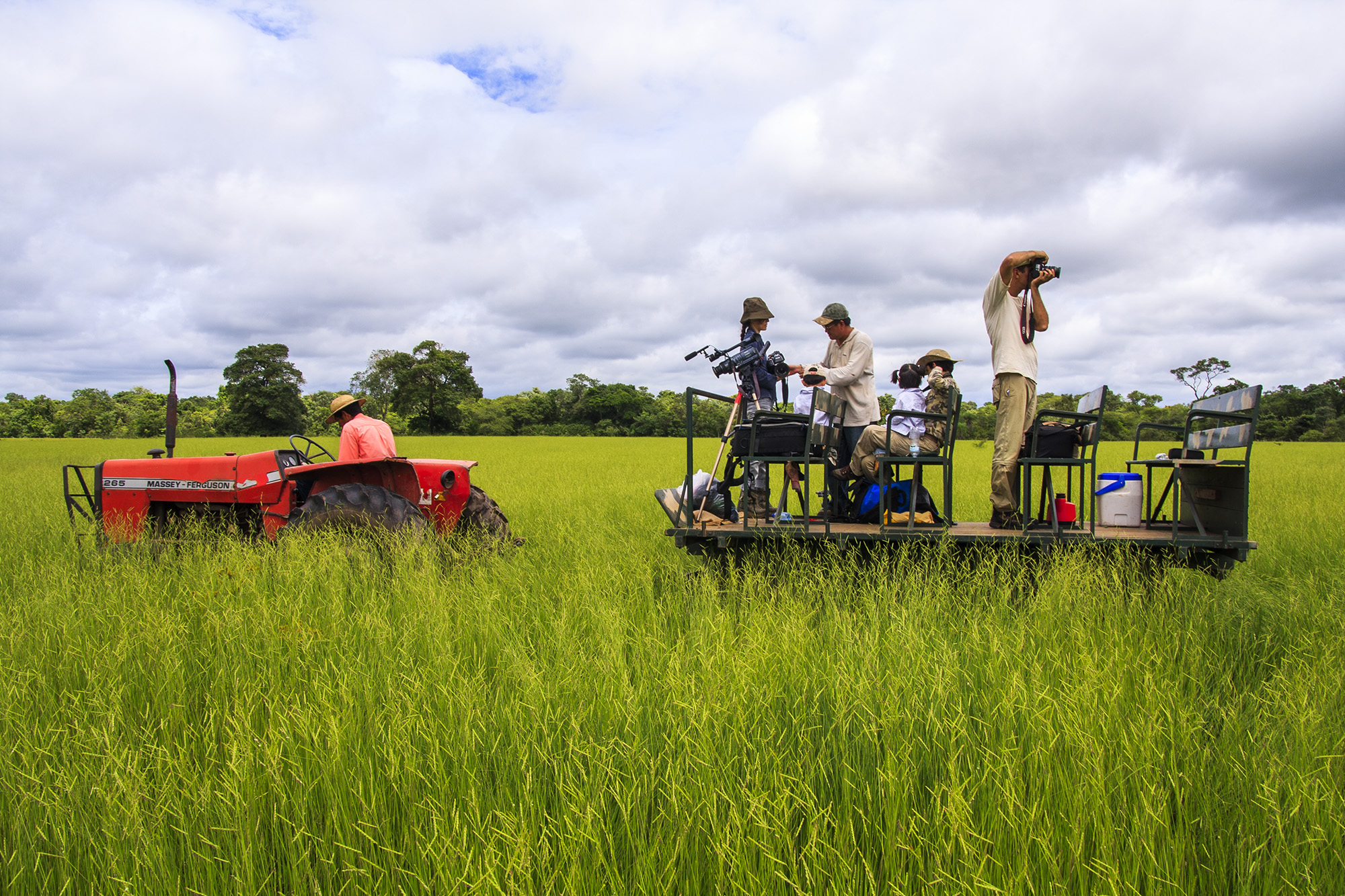Yanjun Zhang: Directer’s interpretation

During the long period of ten years, we had a “journey” through territory, culture and psychology in Brazil.
“Brazilians” are settlers to this land, coming from corner to corner of this world and standing for different race groups. Families are the most basic units of Brazilian society. Every family in Brazil begins from vigorous home making and career building. In order to defend and survive, they create the unique culture of “Festa” together while giving it different meanings separately so as to display family history and its race tradition.
“Gold washers” to the Iguape River are the earliest to this place 500 years ago. Abundant gold and infinite treasure resulted in continual dispute and plunder. To expand and manage, the Portugal royal family of the colonists began to recruit immigrants from everywhere, issuing colonial certificates to them, and even selling land to the new comers privately. Even to this day, many families still do not know how wide their land is. But it is clear that, from the town to the depopulated area, any “public region” you thought of may be private land of one family. In fact, it is better to get to know the family to deep understand Brazilian culture.
Every Brazilian family we had intimate contact with has dozen of stories.
Blumenau is a German philosopher and pharmacist. He came to Brazil for investigation in 1846, and created his colony at Vale basin in 1850 where 150,000 people were there when being named in 1880, and most of them are German descent. Today, Blumenau is a Brazilian city having 3.1 million people who strictly follow prime directive of Blumenau; Germany is taught in school and Germany’s Oktoberfest is held in October annually.
Alexander is the master of Fazenda Baía Grande Manor; he is the third generation of inheritor of the Margues family. In those days, his grandpa brought his whole family here by an ox cart, expanding his region by competing with nature and animals, so as to settle down at legendary Pantanal swampland. As Pantaleiro, Alexander was our third guide in the
Pantanal swampland, and his son, Thiago, was the only little friend of Link and Viviana.
There are also family of Tonico, family of Odilon, family of Gerson, and stories about them and between them and us.
When arriving in Brazil, our strongest feeling is about rhythm of Samba. In order to record this year-round feast, we invested the Gold Eagle Samba Dance School, planning and starting 2003 Sao Paul Carnival of “China Theme”. It is this great success that guided us to the blurred “June Eleventh Square” which is located at living area of black people in the old city of Rio de Janeiro, and its name comes from an disappeared ancient street. After abolition of slavery in Brazil, batches of negro slaves of those days gathered here, they built sheds and sang and danced licentiously, creating lots of African Music. They built “Samba School” to avoid policemen. In 1932, a journalist, Mario Fileo lobbied El Mundo Deportivo where he worked to sponsor the Samba School for the first parade in this square, which rapidly became popular in the country, and became national culture of Brazil. Today, this place is a world-famous Rio slum.
In the following days, we recorded fantastic “Capoera” dance and plaintive “Pantaleiro” music and a lot of other symbolic Brazilian culture. We are also the first recorder for the secret and original Brazilian “Fandango” culture.
We came to Brazil for taking pictures in Amazon River. Followed with unexpected things, the dream of Amazon turned into planning and starting the Carnival of China Theme in Sao Paul and then stepping on long journey of “gold washers”. Beginning from the legendary Iguape River, we went across Vale basin and arrived at the largest swampland, Pantanal. In our journey, we experienced the births of our two kids.
This is a personal experience, which cannot be described as vigorous, but having countless heart quake.
Figures
Yanjun Zhang is smart. Despite of objective difficulties, obstacles set by ill-disposed person, from dream of Amazon, to Carnival and following the gold washers, he solved unnumbered hard problems through unexpected methods and arrived at Amazon River finally.
Linjie Xiao has high intelligence; she creates a magical language which can be used to communicate with different races (even animals) through high experience as a dancer, which enables us to touch the tradition and secret culture of different races.
Link and Viviana were born during the journey of shooting. The two kids have followed their parents travelling since their births, recording the world they saw by the camera. They are “recorders” and “performers”. Today, Lin Ke performs simultaneous interpretation for this film in Brazilian Portuguese, Indian and Chinese; and Viviana performs the theme song Hometown (Cio da Terra) of this film through her special understanding.